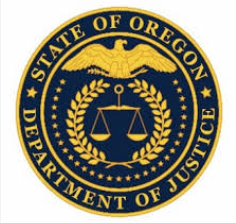Oregon’s Department of Justice Financial Fraud/Consumer Protection Section has a new scam alert warning of bad actors impersonating lawyers to steal hundreds of thousands of dollars. Here’s a link to the full text of the “New scam alert”.
In one recent case a fraudulent website impersonated an Oregon attorney and scammed victims out of hundreds of thousands of dollars, while in another case the victim lost over $700,000 when scammers gained unauthorized access to both the attorney’s and the client’s email accounts, during the negotiations of a substantial settlement with false wiring instructions.
Be diligent. Pick up the phone and talk to trusted contacts. Meet face-to-face.
Oregon’s DOJ advises: “If you have been impacted by this scam:
- File a report with the FBI Internet Crime Complaint Center » as quickly as possible
- File a police report with your local police department
- If money was delivered via wire, contact your bank and file a “Suspicious Activity Report”
- File a report with the FDIC » regarding wire fraud
- File a report with the U.S. Office of the Comptroller of the Currency » (OCC) as they investigate banks for unsafe or unsound practices, compliance violations, or breaches of fiduciary duty
- File a report with the Consumer Financial Protection Bureau » (CFPB)
If you are an attorney who has been impersonated:
- Report the incident to the Oregon State Bar
- File a police report with your local police office and provide the imposter website
- File a report with the FBI Internet Crime Complaint Center » and provide the imposter website
Additional precautions for attorneys:
- In transactions involving wiring funds, obtain and confirm wiring instructions in-person, whenever possible.
- If wiring instructions are received via email or another indirect method, verify them using a known and trusted phone number before initiating any transfers.”
-Victoria Blachly







